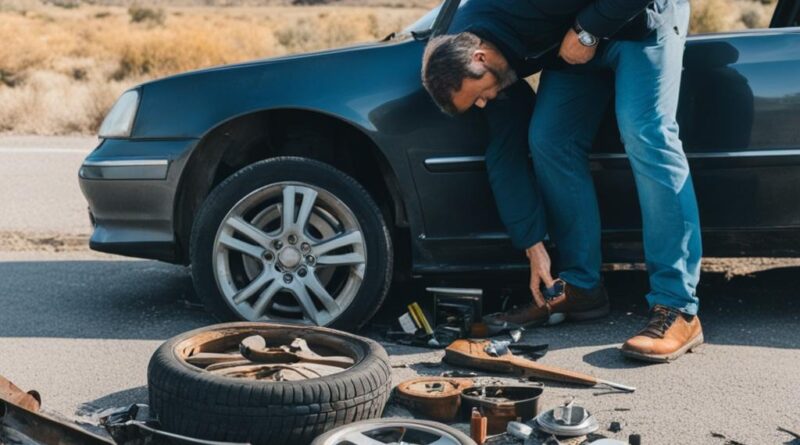Tackling Used Car Problems Within 30 Days
When purchasing a used car, it’s important to be aware of the common issues that may arise within the first 30 days. While buying a pre-owned vehicle can be a cost-effective option, it can also come with its fair share of problems. Understanding these common car problems after purchase can help you make informed decisions and take appropriate steps to address any issues.
Some of the common issues with used cars within the first 30 days include:
- Engine problems
- Transmission issues
- Electrical system malfunctions
- Suspension and steering problems
- Brake and tire issues
These problems can significantly impact the usability, safety, and value of your used car. Therefore, it’s essential to be proactive and understand your rights and options when facing these challenges.
Key Takeaways
- Used cars can experience common problems within the first 30 days after purchase.
- Engine, transmission, electrical system, suspension, and brake issues are among the frequent problems with used cars.
- Being aware of these issues can help you take appropriate action to address them.
- Understanding your rights and options is crucial when dealing with used car problems.
- Consider seeking professional advice and legal representation if needed to navigate the challenges effectively.
Understanding California’s Used Car Lemon Law
California’s used car lemon law provides extensive protections for buyers of used cars, ensuring that dealers and manufacturers cannot sell defective vehicles without facing consequences. This robust legislation upholds the rights of consumers and helps prevent the sale of substandard used cars. Familiarizing yourself with the details and requirements of California’s used car lemon law is essential to ensure you are fully aware of the protections available when purchasing a used car.
California’s lemon law for used cars is designed to safeguard buyers from unknowingly purchasing a lemon, which is a vehicle with significant defects that impair its use, value, or safety. Under this legislation, buyers are entitled to certain remedies, such as a refund, replacement, or cash settlement, if their used car meets the criteria of a lemon.
Key Provisions of California’s Used Car Lemon Law:
- Applies to used cars purchased or leased for personal or business use.
- Covers vehicles sold with a dealer’s warranty or an extended warranty.
- Requires the manufacturer or dealer to make a reasonable number of repair attempts to fix defects.
- Protects buyers if the vehicle has been out of service for at least 30 days due to repairs.
- Allows consumers to seek remedies through informal dispute resolution programs or legal action.
By understanding California’s used car lemon law, you can confidently navigate the process and protect yourself from purchasing a defective vehicle. It is crucial to be aware of your rights and options if you find yourself dealing with a lemon car within the state of California.
“California’s used car lemon law provides important protections for buyers of used cars, ensuring that dealers and manufacturers cannot sell a defective vehicle without consequences.”
| Key Points | Details |
|---|---|
| Who is protected? | Buyers of used cars purchased or leased in California |
| What is covered? | Used cars sold with a dealer’s warranty or an extended warranty |
| Requirements for a lemon | One or more substantial defects that impair the vehicle’s use, value, or safety |
| Remedies for buyers | Refund, replacement, or cash settlement |
| Resolution options | Informal dispute resolution programs or legal action |
Knowing the ins and outs of California’s used car lemon law will empower you as a buyer and ensure that your rights are protected. Whether you encounter issues with a used car purchased from a dealer or a private party, understanding these protections is essential to achieving a fair resolution and avoiding potential financial losses.
What Is Covered by California’s Used Car Lemon Law?
California’s used car lemon law provides essential protection for vehicles purchased from dealers or retailers that are covered by a warranty. Whether it’s an implied warranty of merchantability or an extended warranty or service contract provided by the dealer, these vehicles are eligible for lemon law coverage.
Understanding the warranty coverage of a used car is crucial when assessing potential lemon law claims. Here’s what you need to know:
Implied Warranty of Merchantability
When you purchase a used car in California, there is an implied warranty of merchantability that comes with it. This means that the vehicle should be fit for its ordinary purpose and free from any significant defects at the time of purchase.
This implied warranty ensures that the car is of reasonable quality and meets the reasonable expectations of a buyer. If a used car fails to meet these requirements, it may be considered a lemon under California’s lemon law.
Extended Warranty or Service Contract
In addition to the implied warranty of merchantability, many used cars come with extended warranties or service contracts provided by the dealer. These agreements provide additional coverage beyond the manufacturer’s warranty, offering peace of mind to the buyer.
Under California’s lemon law, vehicles covered by extended warranties or service contracts are eligible for protection if they meet the requirements for lemon law coverage. If the vehicle experiences recurring issues that cannot be resolved within a reasonable number of repair attempts, the buyer may be entitled to a refund or replacement.
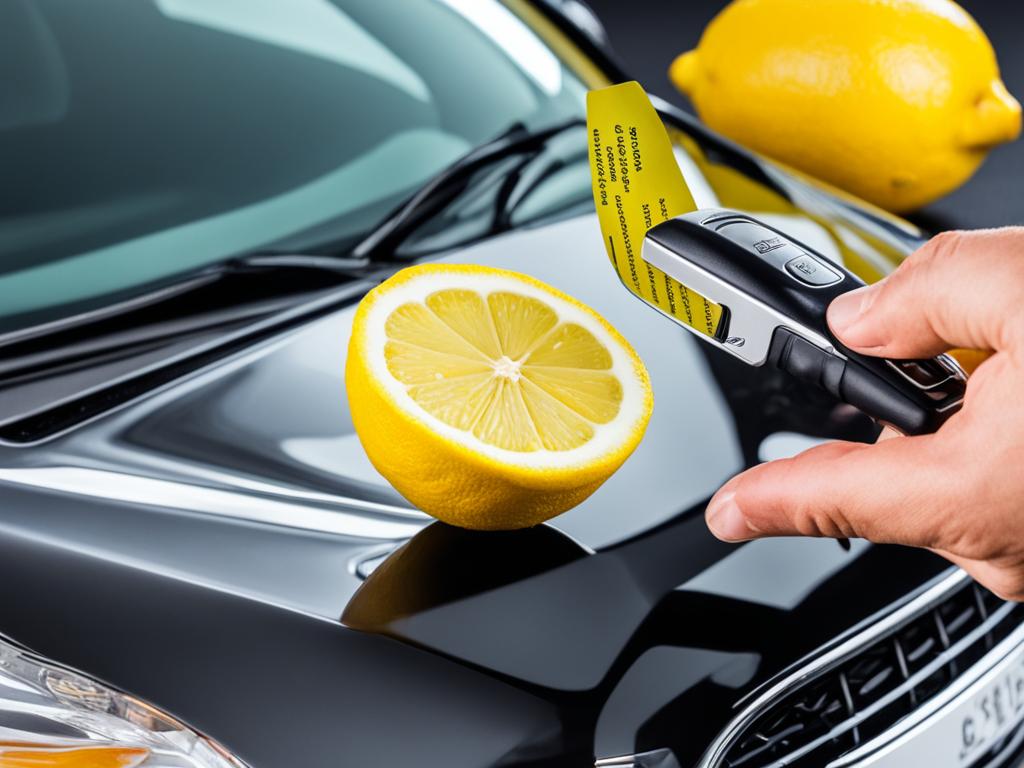
“The warranty coverage of a used car is a crucial factor when determining whether it qualifies as a lemon under California’s lemon law. Buyers should thoroughly review the warranty terms and understand their rights as provided by the law.”
When purchasing a used car, it’s important to review the warranty coverage and understand the protections provided by California’s used car lemon law. Knowing the scope of coverage can help buyers make informed decisions and take appropriate action if their vehicle experiences significant defects or recurring issues.
Certified Pre-Owned Vehicles and Lemon Law Protection
When it comes to buying a used car, certified pre-owned vehicles (CPO) offer an added layer of assurance. These vehicles go through a rigorous inspection and meet specific standards set by the manufacturer. While CPO vehicles generally come with extended warranties, it’s important to note that not all certification programs are the same. Consumers should take the time to review the details of a CPO vehicle’s inspection report and history before making a purchase to ensure they are getting a reliable and dependable vehicle.
Unlike regular used cars, CPO vehicles often carry additional benefits such as comprehensive mechanical and cosmetic inspections, reconditioning, and extended warranty coverage. This means that buyers can have peace of mind knowing that their CPO vehicle is backed by the manufacturer’s confidence in its reliability and overall condition.
Benefits of Certified Pre-Owned Vehicles:
- Thorough inspection and adherence to manufacturer standards
- Extended warranty coverage
- Additional benefits and perks
- Reconditioning and refurbishment
- Verified vehicle history and condition
Certified pre-owned vehicles provide consumers with a higher level of confidence and peace of mind. Not only do they offer the assurance of a thorough inspection, but they also come with extended warranty coverage, ensuring that buyers are protected in case any issues arise after the purchase.
When shopping for a CPO vehicle, it’s crucial to pay attention to the specific CPO program, as different manufacturers may have varying criteria and levels of warranty coverage. By understanding the details of the manufacturer’s CPO program, buyers can make an informed decision and have greater confidence in their purchase.
Here is an example of a CPO vehicle inspection checklist:
| Inspection Category | Checklist Items |
|---|---|
| Exterior | Body condition, paint quality, glass, lights |
| Interior | Seats, upholstery, dashboard, controls |
| Mechanical | Engine, transmission, brakes, suspension |
| Electrical | Lights, instrument panel, audio system |
| History | Verification of mileage, maintenance records |
By carefully reviewing the certified pre-owned vehicle’s inspection report and history, buyers can have a better understanding of its condition and potential reliability. This knowledge is essential when it comes to making a confident purchase decision and ensuring lemon law coverage, if ever needed.
When considering a certified pre-owned vehicle, take advantage of the benefits and protections that often come with these vehicles. Remember to review the CPO program details, inspect the vehicle thoroughly, and understand the warranty coverage to make an informed choice and enjoy a reliable and satisfying ownership experience.
Lemon Law Cases and Examples
Lemon law cases involving used cars are not uncommon, and they serve as vital examples of how consumers can be protected when they purchase defective vehicles. These cases highlight the significant role that lemon laws play in safeguarding buyers from the financial and emotional burdens of owning a lemon.
One illustrative example of a lemon law case involves persistent issues with the electrical system of a used car. Despite repeated repairs and attempted fixes, the vehicle continued to experience malfunctions that rendered it unreliable and unsafe for the owner. The lemon law came into effect, allowing the consumer to pursue legal action and seek recourse from the manufacturer or dealer.
Another example revolves around a used car with recurring transmission problems. The owner faced repeated breakdowns and costly repairs, significantly impacting their ability to use the vehicle. Thanks to the lemon law, they were able to assert their rights and request appropriate compensation or a replacement vehicle from the responsible party.
Engine problems also frequently feature in lemon law cases. For instance, a consumer may have purchased a used car with a defective engine that consistently failed to perform as expected. Despite multiple repair attempts, the issues persisted, causing frustration and financial strain. In such cases, lemon laws can provide the necessary framework to protect the consumer’s rights and hold the manufacturer or dealer accountable.
These examples demonstrate the importance of seeking legal advice and taking action when faced with the challenges of owning a potential lemon. Lemon law cases serve as reminders that consumers have rights and remedies available to them when they find themselves saddled with a defective used car. If you believe you have a lemon law case, it is crucial to consult with an experienced attorney who specializes in lemon law to ensure you receive the appropriate compensation and resolution.
Key Takeaways:
- Lemon law cases involving used cars are common and exemplify how lemon laws provide protection to consumers.
- Examples of lemon law cases include issues with electrical systems, transmissions, and engines.
- If you believe you have a lemon law case, it is important to seek legal advice to understand your rights and pursue appropriate compensation.
Consumer Rights and Purchasing a Vehicle “As-Is”
When purchasing a used car “as-is,” consumers have limited rights compared to buying a car with a warranty. In this type of transaction, the buyer takes on the responsibility for any repairs or issues that arise after the sale. It’s important for consumers to understand the implications of buying a vehicle “as-is” and be aware of their rights in such situations.
Under the concept of “as-is,” the seller is essentially stating that they are selling the vehicle in its current condition without any guarantees or warranties. This means that if problems occur after the purchase, the buyer is solely responsible for the cost of repairs or any other issues that may arise.
However, it’s important to note that there are exceptions to this rule. One such exception is the implied warranty of merchantability, which exists in many states, including California. The implied warranty of merchantability stipulates that even in an “as-is” sale, the seller is guaranteeing that the vehicle is fit for its intended purpose.
For example, if someone buys a used car “as-is” with the intention of using it for everyday transportation, but the car breaks down within a week due to a mechanical issue that was not disclosed by the seller, the buyer may have recourse under the implied warranty of merchantability. This warranty ensures that the vehicle is reasonably free from defects that would prevent it from running properly or make it unsafe to drive.
The Implied Warranty of Merchantability
The implied warranty of merchantability is automatically applied to the sale of goods, including used cars, unless it is explicitly disclaimed by the seller. To make a successful claim under the implied warranty of merchantability, the buyer must demonstrate that:
- The vehicle has a defect that renders it unfit for its intended purpose
- The defect existed at the time of sale
- The buyer could not have reasonably discovered the defect before the purchase
If these conditions are met, the buyer may be able to seek legal remedies, including repairs, a refund, or even a replacement vehicle, depending on the circumstances.
It’s worth noting that the implied warranty of merchantability is not indefinite and has limitations. The warranty typically covers a reasonable period of time after the purchase, which is generally considered to be a few months. However, the specific duration can vary depending on state laws and other factors.
Therefore, it’s crucial for buyers to carefully review the terms of the sale and any disclaimers provided by the seller. It’s also advisable to have a trusted mechanic inspect the vehicle before making a purchase, even if buying “as-is,” to identify any potential problems.
“Buying a used car ‘as-is’ comes with its own set of risks, but the implied warranty of merchantability can serve as a valuable protection for consumers. It’s important to be aware of your rights and to take appropriate steps if you believe the seller has violated the implied warranty.”
Ultimately, purchasing a vehicle “as-is” requires caution and due diligence on the part of the buyer. Conducting thorough research, inspecting the vehicle, and understanding your rights as a consumer can help mitigate potential risks when buying a used car without a warranty.
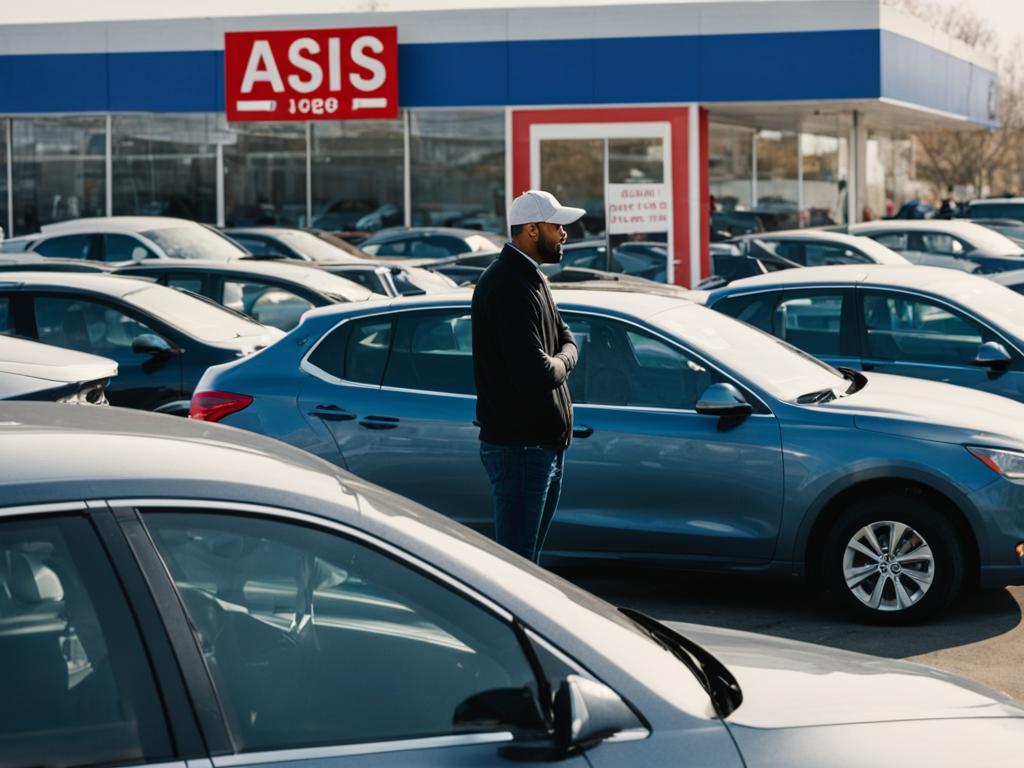
An informative, visually-engaging table providing a quick comparison of consumer rights when purchasing a used car with a warranty versus purchasing a vehicle “as-is” can be found below:
| Consumer Rights | Purchasing with Warranty | Purchasing “As-Is” |
|---|---|---|
| Protection against undisclosed defects | Yes | No* |
| Right to repairs or replacements | Yes | No |
| Financial responsibility for repairs | No* | Yes |
| Availability of legal remedies | Yes | Yes* |
*Exception: Implied warranty of merchantability may provide limited protection.
Understanding your rights when purchasing a vehicle “as-is” empowers you as a consumer and enables you to make informed decisions. While the protections may be limited, remaining vigilant and seeking legal advice when necessary can help safeguard your interests as you navigate the used car market.
Understanding Used Car Warranties
When purchasing a used car, it’s important to be aware of the warranty coverage offered by the seller. Used cars may come with different types of warranties that provide protection and potential remedies if issues arise. Let’s explore the various types of warranties commonly associated with used cars.
Implied Warranty of Merchantability
An implied warranty of merchantability is a common type of warranty that automatically comes with the purchase of a used car. This warranty ensures that the vehicle is fit for its ordinary purpose and is in a condition that is acceptable for its age and mileage.
Under this warranty, the seller guarantees that the vehicle will function as expected, free from any substantial defects that would impair its use, value, or safety. If the vehicle fails to meet these standards, the buyer may have legal recourse to seek repairs or even a refund.
Extended Warranty or Service Contract
In addition to the implied warranty of merchantability, dealers may offer extended warranties or service contracts to provide additional coverage for used cars. These warranties or contracts typically offer protection beyond the standard warranty and can cover a range of repairs and services.
Extended warranties or service contracts may provide peace of mind for buyers by reducing the financial burden of unexpected repairs. It’s essential to review the terms and conditions of these warranties or contracts to understand the extent of coverage and any limitations or exclusions.
“Understanding the warranty coverage of a used car is crucial in ensuring that you are protected in case of any issues or defects. Take the time to read and comprehend the terms of the warranty, as it could save you both time and money in the long run.” – [Expert Name], Automotive Specialist
The Value of a Used Car Warranty
Having a warranty for your used car provides several advantages. It offers you protection by holding the seller accountable for any significant defects or problems that may occur shortly after the purchase. A warranty can also give you confidence in your buying decision and provide peace of mind knowing that you have options for resolving any issues that may arise.
Regardless of the type of warranty offered, it is crucial to familiarize yourself with the specific terms, conditions, and coverage limitations. Understanding the warranty coverage will help you navigate any potential issues and ensure that you can take appropriate action if needed.
Buy-Here-Pay-Here Dealers and Lemon Law
When purchasing a vehicle from a buy-here-pay-here dealer in California, it’s essential to understand the lemon law protection that applies to these transactions. Buy-here-pay-here dealers, who serve as both the seller and the financing provider, must comply with specific regulations to protect the rights of consumers.
Under California’s lemon law, buy-here-pay-here dealers are required to provide a minimum 30-day or 1,000-mile warranty on the vehicles they sell. This warranty ensures that buyers have recourse if the vehicle experiences significant issues soon after the sale.
Buyers of vehicles from buy-here-pay-here dealers should carefully review the terms and conditions of the warranty provided. It’s crucial to understand the coverage period, mileage limitations, and what types of repairs are covered. This knowledge will help buyers assert their rights and take appropriate action if problems arise within the warranty period.
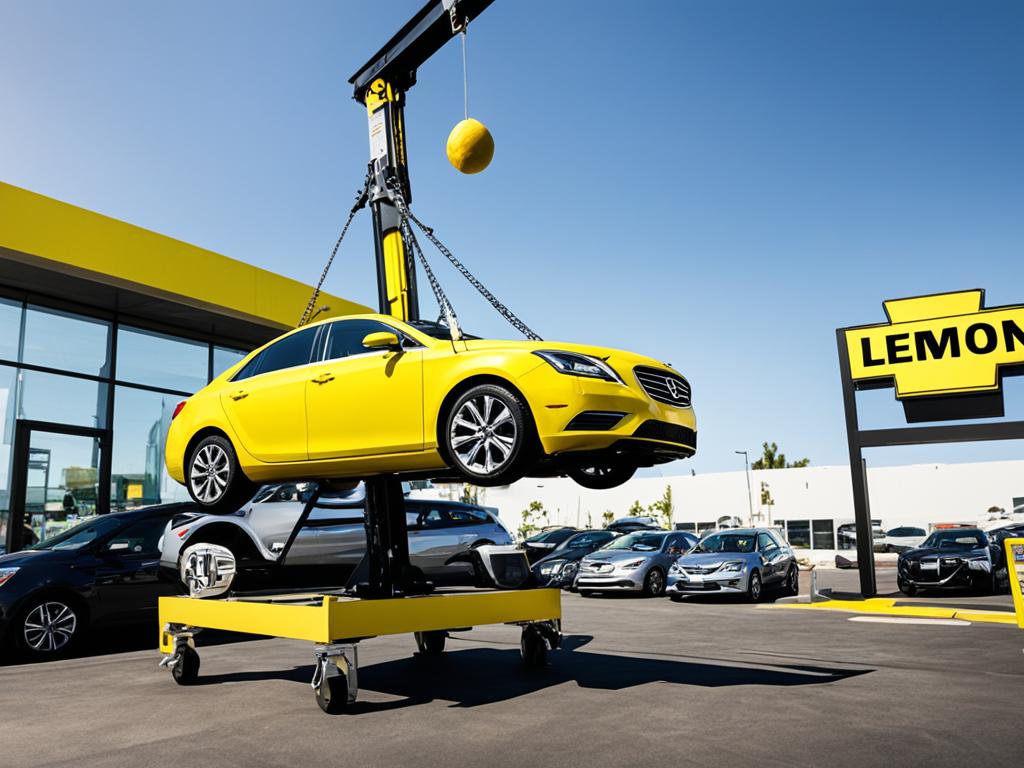
The Importance of Lemon Law Protection for Buy-Here-Pay-Here Purchases
Buying a car from a buy-here-pay-here dealer is often a choice made by individuals with limited financing options due to poor credit or other financial circumstances. These buyers may be more vulnerable to purchasing vehicles with potential problems. Lemon law protection provides them with a safety net, allowing them to seek recourse if the vehicle proves to be defective or unreliable shortly after purchase.
With the minimum 30-day or 1,000-mile warranty, consumers can have peace of mind knowing that they have legal protection against significant vehicle issues. This warranty period allows for prompt repairs or even a possible replacement or refund if the vehicle meets the criteria for a lemon.
Seeking Legal Assistance for Buy-Here-Pay-Here Lemon Law Claims
If buyers encounter problems with a vehicle purchased from a buy-here-pay-here dealer, it’s crucial to understand their rights and the steps to take under the lemon law. Consulting with an experienced lemon law attorney can provide valuable guidance throughout the process.
“Buyers who believe they have purchased a lemon from a buy-here-pay-here dealer should seek legal representation to help them navigate the complex lemon law process. An attorney can help gather the necessary documentation, negotiate with the dealer, and pursue legal action if needed.”
Lemon Law Protection for Buy-Here-Pay-Here Purchases
| Key Information | Details |
|---|---|
| Warranty Requirement | Minimum 30-day or 1,000-mile warranty |
| Eligible Vehicles | Vehicles purchased from buy-here-pay-here dealers in California |
| Covered Repairs | Repairs for significant and qualifying defects |
| Remedies | Possible repairs, replacement, or refund |
Lemon Law Protection for Certified Pre-Owned Vehicles
When it comes to purchasing a certified pre-owned (CPO) vehicle, many buyers assume that lemon law protection is not necessary because of the vehicle’s warranty. However, CPO vehicles can still have defects and qualify as lemons under lemon law regulations. It’s important for consumers to understand the specific lemon law protections that apply to CPO vehicles and how they can seek remedies for recurring issues that cannot be resolved within a reasonable number of repair attempts.
Often, CPO vehicles come with extended warranties that offer additional coverage beyond the standard manufacturer warranty. These warranties can provide peace of mind and financial protection in case of unforeseen issues. However, it’s critical to thoroughly review the warranty terms and understand the extent of coverage provided for various components of the vehicle.
CPO warranties may include coverage for the engine, transmission, electrical systems, and other critical components that are prone to defects. It’s crucial to familiarize yourself with the details of the warranty and any limitations or exclusions that may apply. This will help you assess whether the warranty can adequately address potential lemon law issues.
In some cases, CPO vehicles may have undergone rigorous inspections and meet specific criteria set by the manufacturer. These vehicles often come with a comprehensive inspection report and a vehicle history report to provide buyers with transparency and assurance of the vehicle’s condition and reliability. It’s advisable to carefully review these reports and consider seeking an independent inspection to identify any hidden issues that may not be readily apparent.
Furthermore, if a CPO vehicle experiences recurring problems that substantially impair its use, value, or safety, the lemon law may come into play. The lemon law provides a legal framework to protect consumers who find themselves in such situations. Depending on the circumstances, consumers may be entitled to remedies such as a refund, replacement, or compensation for the vehicle’s diminished value.
It’s important to note that lemon law claims for CPO vehicles generally require a reasonable number of repair attempts to fix the recurring issues. The exact number of attempts may vary depending on the nature and severity of the defects. It’s crucial to document each repair attempt, including invoices, work orders, and other relevant documentation, to build a strong case.
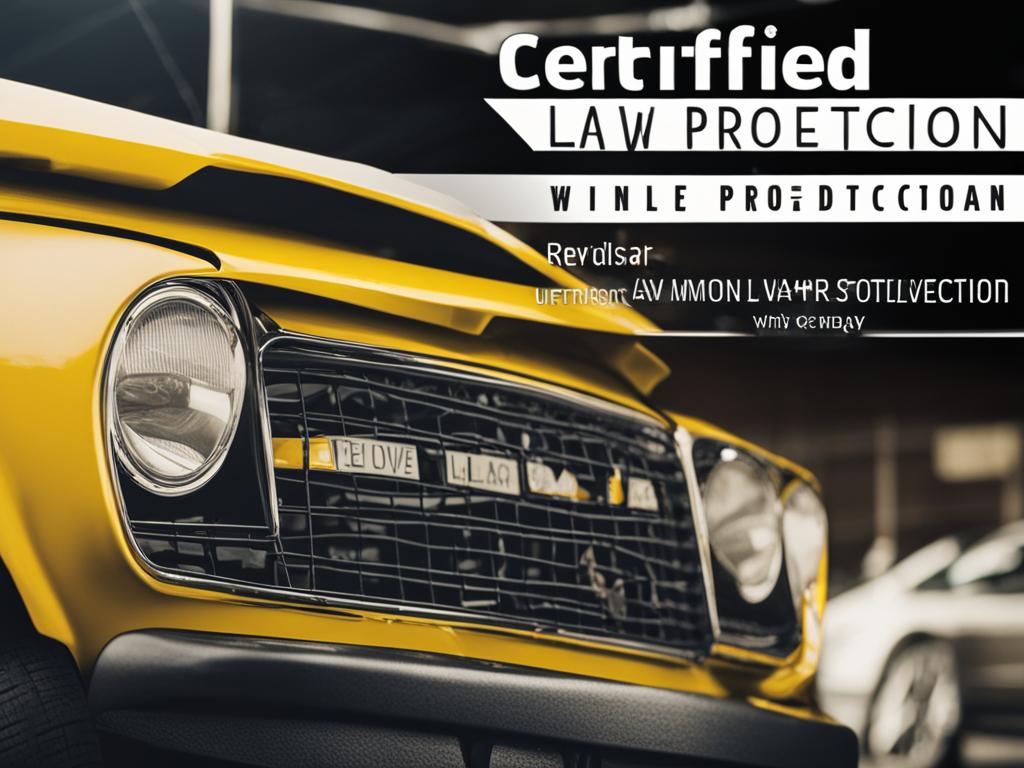
Seeking legal representation can be invaluable when navigating lemon law claims for CPO vehicles. Lemon law attorneys specialize in handling these cases and possess the knowledge and expertise to effectively negotiate with manufacturers and dealerships. They can guide you through the legal process, assess the strength of your claim, and help you pursue the appropriate course of action to protect your rights as a consumer.
In conclusion, while certified pre-owned vehicles often offer additional warranty protection, it’s essential to understand that they can still be subject to lemon law regulations. Familiarize yourself with the lemon law protections that apply to CPO vehicles, thoroughly review the warranty terms, and document any recurring issues and repair attempts. If problems persist and cannot be resolved, consider seeking legal representation to pursue remedies under lemon law regulations.
How Many Repair Attempts Are Required?
The number of repair attempts required under lemon law varies depending on the severity of the defect. When a major fault related to safety is present, it typically requires only two repair attempts before a refund or replacement is deemed necessary. These types of defects pose an immediate risk and require swift resolution. However, persistent defects that pose a risk of death or serious injury may require additional repair attempts before lemon law protections are triggered.
California’s lemon law aims to protect consumers from being stuck with faulty vehicles. It provides guidelines to determine a reasonable number of repair attempts before a vehicle is considered a lemon. The exact number may vary depending on the specific circumstances, but the intent is to ensure that consumers are not unfairly burdened with ongoing repairs for a defective vehicle.
In cases where the defect is not considered major or life-threatening, the repair attempts required to qualify for lemon law protections may be higher. This is because the severity of the defect and its impact on the use, value, or safety of the vehicle play a significant role in determining the reasonable number of repair attempts.
In summary, the number of repair attempts required under lemon law depends on the severity of the defect. Major safety-related faults typically require two repair attempts, while persistent defects with a risk of death or serious injury may require more. It is important to consult the specific lemon law regulations in your state and seek legal advice if you believe your vehicle qualifies as a lemon.
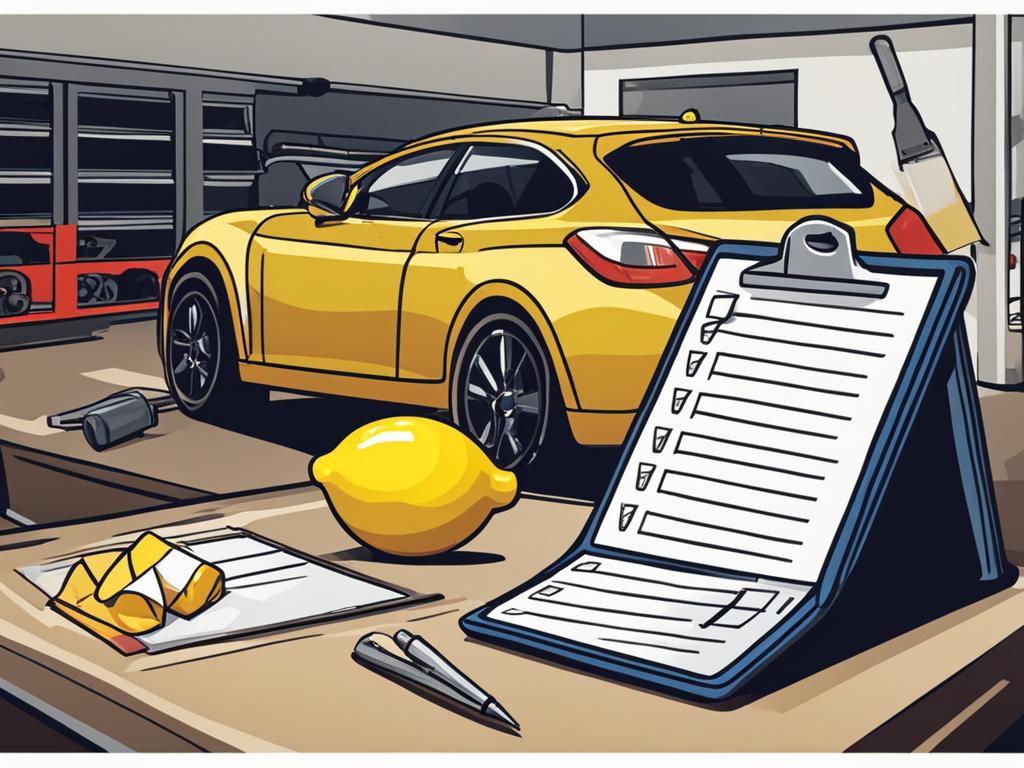
California Lemon Law for Used Cars with No Warranty
Even without a warranty, consumers may still have some protections under California’s implied warranty of merchantability when purchasing a used car. This implied warranty ensures that the vehicle is fit for its ordinary purpose and does not have significant defects at the time of purchase. Consumers should be aware of their rights when buying a used car without a warranty.
Understanding the Implied Warranty of Merchantability
The implied warranty of merchantability is a legal protection provided to buyers of used cars in California, even if the vehicle is sold without a warranty. This warranty applies to every sale of a vehicle by a dealer, whether it is new or used.
Under this implied warranty, the vehicle must meet certain standards, such as being safe to operate, free from major defects, and suitable for its intended purpose. The seller implicitly assures the buyer that the vehicle’s performance and condition will meet these standards.
If a used car purchased without a warranty fails to meet the implied warranty of merchantability, the buyer may have legal recourse under California lemon law.
Protections Offered by the Implied Warranty of Merchantability
The implied warranty of merchantability provides several protections for consumers who buy used cars without a warranty:
- The vehicle must be safe to drive and free from significant defects that affect its operation.
- The vehicle must be suitable for its ordinary purpose, such as transportation.
- The vehicle must conform to the promises and representations made by the seller or manufacturer.
If a used car fails to meet these standards within a reasonable time after purchase, the buyer may be entitled to remedies, including a refund or replacement of the vehicle.
Documenting Defects and Seeking Remedies
When purchasing a used car without a warranty, it is crucial for buyers to carefully document any defects or problems that arise within a reasonable time after the purchase. This documentation will be essential when seeking remedies under the implied warranty of merchantability.
Buyers should keep records of repair attempts, communications with the seller or manufacturer, and any other evidence that supports their claim that the vehicle fails to meet the implied warranty of merchantability.
If a buyer believes their used car is a lemon under the implied warranty of merchantability and seeks remedies, it may be necessary to consult with a lemon law attorney who specializes in California consumer protection laws.

| Pros of Buying a Used Car without a Warranty | Cons of Buying a Used Car without a Warranty |
|---|---|
| Lower Initial Cost: Used cars without warranties often come with lower price tags, making them more affordable upfront. | Potential Repair Costs: Without a warranty, buyers are responsible for any repairs or maintenance costs that arise after the purchase. |
| Freedom to Choose: Buyers can choose from a wider range of used cars, including older models or vehicles from private sellers. | Uncertainty of Vehicle Condition: Without a warranty, buyers have limited recourse if the vehicle has hidden defects or mechanical issues. |
| No Additional Fees: Used cars without warranties typically do not come with additional fees, such as warranty fees or extended service contracts. | Limited Legal Protection: Buyers have fewer legal protections and remedies if the used car is defective or fails to meet expectations. |
Research and Precautions When Buying a Used Car
When it comes to buying a used car, conducting thorough research and taking necessary precautions can save you from potential lemon issues down the road. To ensure a successful purchase, follow these essential steps:
- Research the Model’s Reliability: Before making a decision, it’s crucial to research the reliability of the specific model you’re interested in. Look for reviews and ratings from reputable sources that provide insights into common problems or recurring issues.
- Read Consumer Reports: Consumer reports can provide valuable information about the reliability and performance of different used car models. These reports are based on real-world experiences and can help you make an informed decision.
- Check Vehicle History Reports: Obtain a comprehensive vehicle history report to get an accurate picture of the car’s past. This report can reveal important details such as previous accidents, flood or fire damage, odometer discrepancies, and ownership history.
- Thoroughly Inspect the Vehicle: Before finalizing the purchase, make sure to thoroughly inspect the vehicle both inside and out. Look for signs of wear and tear, check for any visible damages or inconsistencies, and take the car for a test drive to assess its performance.
- Consider a Pre-Purchase Inspection: To obtain a professional opinion on the car’s overall condition and potential underlying issues, it’s advisable to get a pre-purchase inspection from a trusted mechanic. They can identify any hidden problems that may not be apparent during a regular inspection.
By diligently following these research and precautionary measures, you can minimize the risk of purchasing a lemon and ensure a smooth buying experience. Remember, it’s better to invest time in research and inspections upfront than to face costly repairs and frustrations later on.
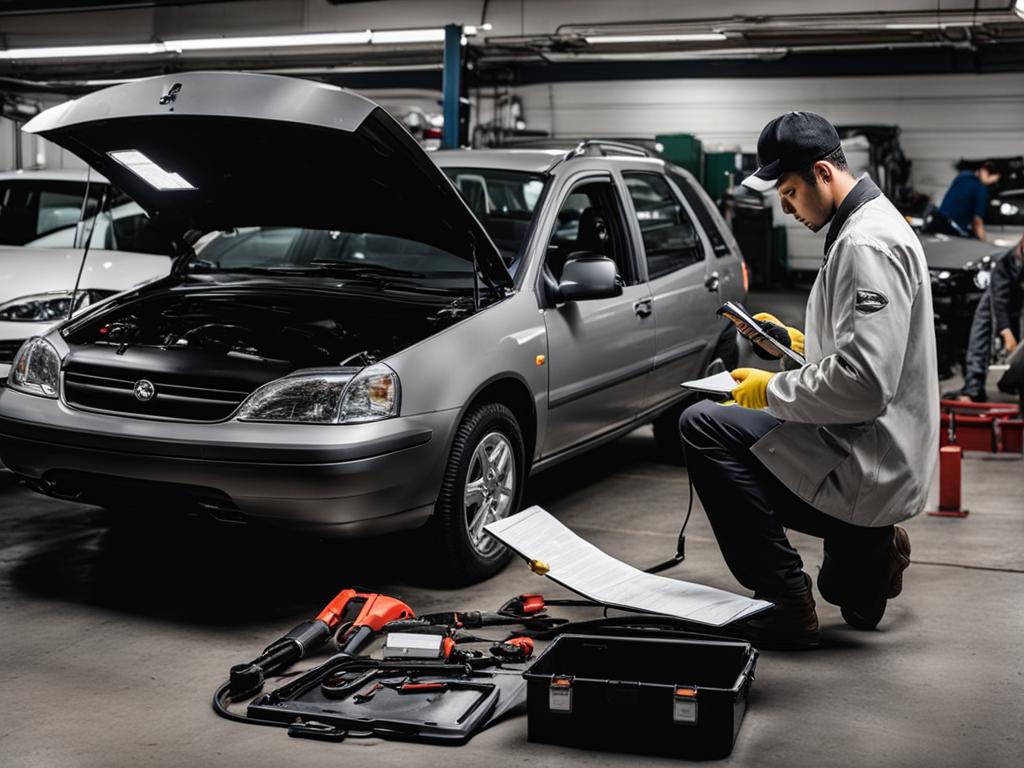
Take necessary steps when buying a used car to avoid risks and ensure a reliable vehicle. Researching the model’s reliability, reading consumer reports, checking vehicle history, thoroughly inspecting the car, and considering a pre-purchase inspection are key practices to make an informed and confident buying decision.
What Qualifies as a Lemon under California’s Lemon Law?
California’s lemon law provides important protections for consumers who purchase vehicles with substantial defects that impair their use, value, or safety. To qualify as a lemon under California’s lemon law, certain qualifications and requirements must be met:
1. Substantial Defects:
The vehicle must have one or more substantial defects that significantly impact its functionality, value, or safety. These defects must go beyond minor issues and must substantially impair the vehicle’s usability, pose a risk to the driver and passengers, or significantly diminish its resale value.
2. Manufacturer or Dealer Warranty:
The vehicle must be covered by a manufacturer or dealer warranty at the time of purchase. This warranty can be either explicit or implied, ensuring that the vehicle is free from defects and meets certain standards of quality. The warranty provides the buyer with the assurance that any defects will be repaired or addressed by the manufacturer or dealer.
3. Reasonable Number of Repair Attempts:
The manufacturer or dealer must have been given a reasonable number of repair attempts to fix the substantial defects. This typically involves providing the manufacturer or dealer with multiple opportunities to repair the same defect. The exact number of repair attempts required may vary depending on the specific circumstances and severity of the defects.
4. No Driver Abuse:
The substantial defects should not be caused by driver abuse or neglect. If the defects are a result of the driver’s actions, such as improper maintenance or misuse of the vehicle, the lemon law protections may not apply.
In summary, to qualify as a lemon under California’s lemon law, the vehicle must have substantial defects, be covered by a warranty, and the manufacturer or dealer should have been given a reasonable number of repair attempts to address the defects. This ensures that consumers are protected from purchasing faulty vehicles and have avenues to seek remedies or compensation if their vehicles meet the lemon law qualifications.
| Qualifications | Requirements |
|---|---|
| Defects | One or more substantial defects impairing use, value, or safety |
| Warranty | Covered by a manufacturer or dealer warranty |
| Repair Attempts | Reasonable number of repair attempts by the manufacturer or dealer |
| No Driver Abuse | Defects not caused by driver abuse or neglect |
Lemon Law Coverage for Different Types of Vehicles
California’s lemon law provides coverage for various types of vehicles, ensuring that consumers are protected when they purchase a car, SUV, RV trailer, or even watercraft. The law applies to vehicles used for personal or commercial purposes, as long as they meet specific criteria. It’s important for consumers to understand how the lemon law applies to their particular vehicle type and the coverage it provides.
When it comes to lemon law coverage for SUVs, the same rules and protections apply as they do for cars. If you purchase an SUV in California and it is found to have substantial defects that impair its use, value, or safety, you may be entitled to lemon law remedies. This includes the possibility of a refund or vehicle replacement.
RV trailers are also covered under California’s lemon law. If you experience recurring issues with your RV trailer that cannot be resolved within a reasonable number of repair attempts, you may have a lemon law claim. It’s essential to document all repair attempts and the nature of the defects to support your case.
| Vehicle Type | Lemon Law Coverage |
|---|---|
| Car | Covered under lemon law |
| SUV | Covered under lemon law |
| RV Trailer | Covered under lemon law |
| Watercraft | Covered under lemon law |
As seen in the table above, lemon law coverage extends to various types of vehicles under California law. Whether you have purchased a car, SUV, RV trailer, or even a watercraft, it is crucial to be aware of your rights as a consumer and the protections provided by the lemon law.
Lemon Law Process and the Importance of Legal Representation
Navigating the lemon law process can be complex and overwhelming, especially when dealing with the frustration of a defective used car. That’s why it’s crucial to seek legal representation to ensure your rights are protected and to maximize your chances of a successful lemon law claim.
Lemon law attorneys specialize in handling lemon law cases and have extensive knowledge and experience in this complex area of law. They can guide you through the necessary steps, provide valuable advice, and advocate for your rights throughout the entire process.
When you work with a lemon law attorney, they will assist you in gathering the documentation necessary to support your case. This may include purchase agreements, repair records, and any communication with the manufacturer or dealer. They will thoroughly review your case details to determine the best course of action.
If your case meets the requirements of the lemon law, your attorney will help you request repairs from the manufacturer or dealer. They will ensure that the repair attempts are properly documented and that you have given the manufacturer or dealer a reasonable opportunity to fix the defects.
If the repairs are unsuccessful in resolving the issues with your vehicle, your attorney can advise you on pursuing legal action. This may involve filing a lawsuit against the manufacturer or dealer to seek compensation, a replacement vehicle, or a refund.
Why is legal representation important?
“Having legal representation for your lemon law case is crucial to level the playing field. Lemon law attorneys have the expertise, resources, and negotiation skills to effectively advocate for your rights and hold the manufacturer or dealer accountable.”
Here are some key reasons for seeking legal representation in your lemon law case:
- Knowledge and Experience: Lemon law attorneys are well-versed in the intricacies of lemon law and have handled numerous cases before. They understand the legal requirements, deadlines, and strategies needed to build a strong case on your behalf.
- Negotiation Skills: Lemon law attorneys have excellent negotiation skills and can effectively communicate with the manufacturer or dealer’s legal team, increasing the likelihood of a favorable settlement.
- Resources: Lemon law cases can involve extensive research, expert opinions, and gathering evidence. Attorneys have access to these resources and can use them to support your case effectively.
- Reduced Stress: Dealing with a defective vehicle can be incredibly stressful. By hiring an attorney, you can alleviate some of the stress and focus on other aspects of your life while they handle the legal proceedings.
By working with a lemon law attorney, you can have peace of mind knowing that you have a professional advocating for your rights and fighting for the compensation and resolution you deserve.
| Benefits of Legal Representation for Lemon Law Cases | Explanation |
|---|---|
| Expertise and Knowledge | Lemon law attorneys have a deep understanding of the lemon law process and can navigate through its complexities. |
| Strong Advocacy | Attorneys can effectively advocate for your rights and negotiate with the manufacturer or dealer on your behalf. |
| Access to Resources | Lemon law attorneys have access to expert opinions, resources, and research materials that can strengthen your case. |
| Reduced Stress | Hiring an attorney can relieve the burden of dealing with a lemon law case and allow you to focus on other aspects of your life. |
Conclusion
Understanding your rights as a buyer of a used car is essential, especially when problems arise within the first 30 days. California’s lemon law provides important protections for consumers, ensuring that you have avenues to address any issues that may arise with your used car purchase. It’s crucial to take appropriate steps, such as seeking legal representation if necessary, to effectively navigate the process and seek a resolution.
By being informed about your rights and proactive in addressing potential lemon issues, you can protect yourself as a consumer and work towards a satisfactory outcome. Whether you’re dealing with major defects that impair the safety or value of your vehicle or ongoing issues that cannot be resolved within a reasonable number of repair attempts, the lemon law is designed to provide you with options for recourse.
If you find yourself facing difficulties with your used car within the first 30 days, it’s important to consult with a lemon law attorney who specializes in handling these cases. They can assist you in gathering the necessary documentation, requesting repairs, and taking legal action if needed. With legal representation, you can increase your chances of a successful lemon law claim and seek the resolution you deserve.
FAQ
What are the common issues with used cars within 30 days of purchase?
Common issues with used cars within 30 days of purchase can include electrical problems, transmission issues, and engine malfunctions.
What is California’s lemon law for used cars?
California’s lemon law provides protections for buyers of used cars, ensuring that dealers and manufacturers cannot sell a defective vehicle without consequences.
What vehicles are covered by California’s used car lemon law?
California’s used car lemon law covers cars, SUVs, RV trailers, and watercraft used for personal or commercial purposes.
Do certified pre-owned vehicles have lemon law protection?
Certified pre-owned vehicles may have lemon law protection, but it’s important to understand the specific lemon law protections that apply to CPO vehicles.
What are some examples of lemon law cases involving used cars?
Some examples of lemon law cases involving used cars include issues with electrical systems, transmissions, and engine problems.
Do I have rights when purchasing a used car “as-is”?
When purchasing a used car “as-is,” buyers have limited rights compared to buying a car with a warranty, but exceptions such as implied warranties of merchantability may provide some protection.
What types of warranties may come with a used car?
Used cars may come with warranties such as implied warranties of merchantability and extended warranties or service contracts offered by the dealer.
What warranty protections do buy-here-pay-here dealers have to offer?
Buy-here-pay-here dealers in California must provide a minimum 30-day or 1,000-mile warranty on the vehicles they sell under the lemon law.
How many repair attempts are required under the lemon law?
The number of repair attempts required under the lemon law varies depending on the severity of the defect, with major faults typically requiring two repair attempts.
What protections do consumers have when buying a used car with no warranty?
Even without a warranty, consumers may still have some protections under California’s implied warranty of merchantability when purchasing a used car.
What research and precautions should I take when buying a used car?
When buying a used car, it’s important to research the model’s reliability, read consumer reports, check vehicle history reports, thoroughly inspect the vehicle, and consider getting a pre-purchase inspection.
What qualifies as a lemon under California’s lemon law?
To qualify as a lemon under California’s lemon law, a vehicle must have one or more substantial defects that impair its use, value, or safety and must be covered by a warranty.
How does California’s lemon law apply to different types of vehicles?
California’s lemon law applies to various types of vehicles, including cars, SUVs, RV trailers, and watercraft, used for personal or commercial purposes, as long as they meet specific criteria.
Is legal representation important for navigating the lemon law process?
Yes, legal representation is crucial for navigating the lemon law process, as lemon law attorneys specialize in handling lemon law cases and can guide buyers through the necessary steps.
What should I do if I have used car problems within 30 days of purchase?
If you have used car problems within 30 days of purchase, it’s important to seek legal representation and take appropriate steps to address the issues effectively.

